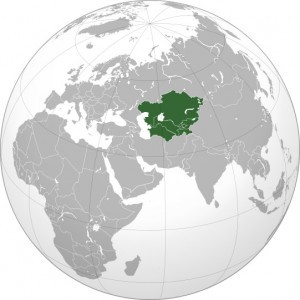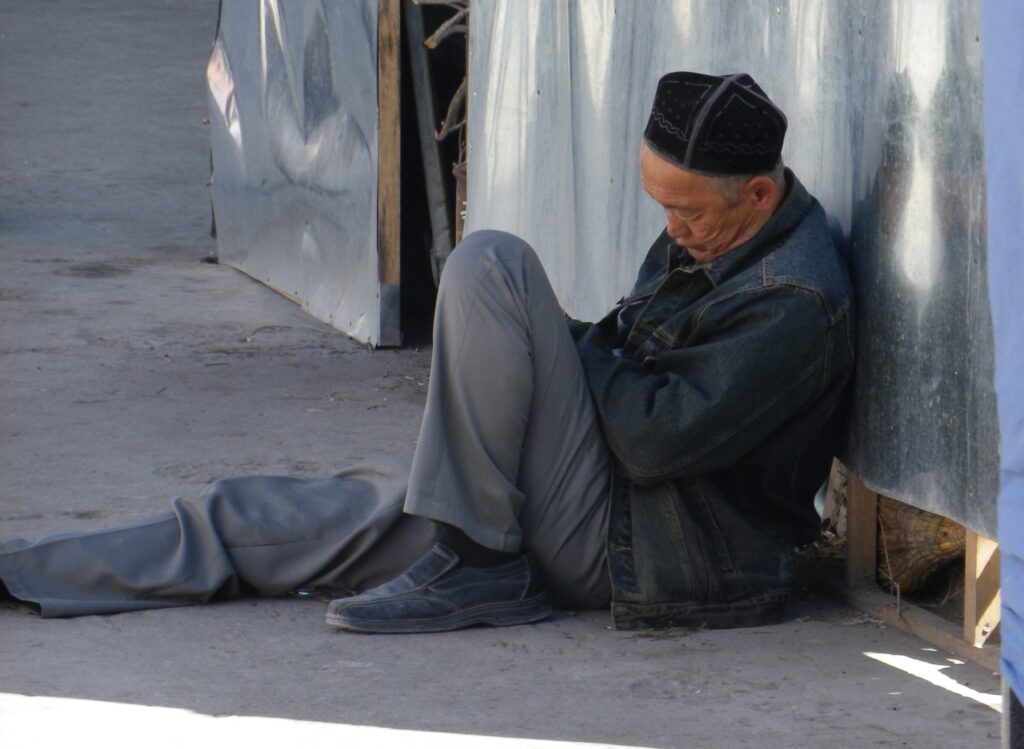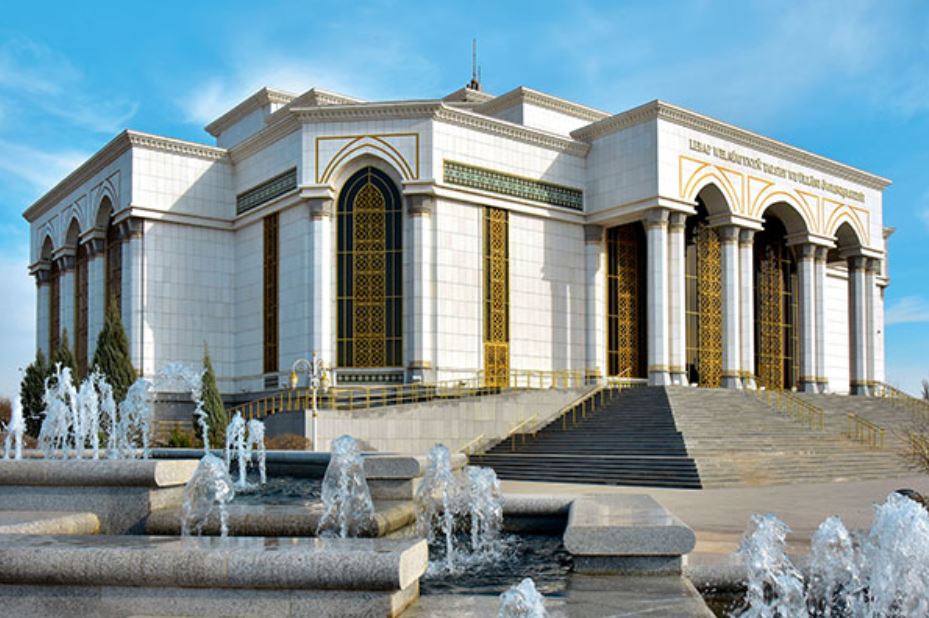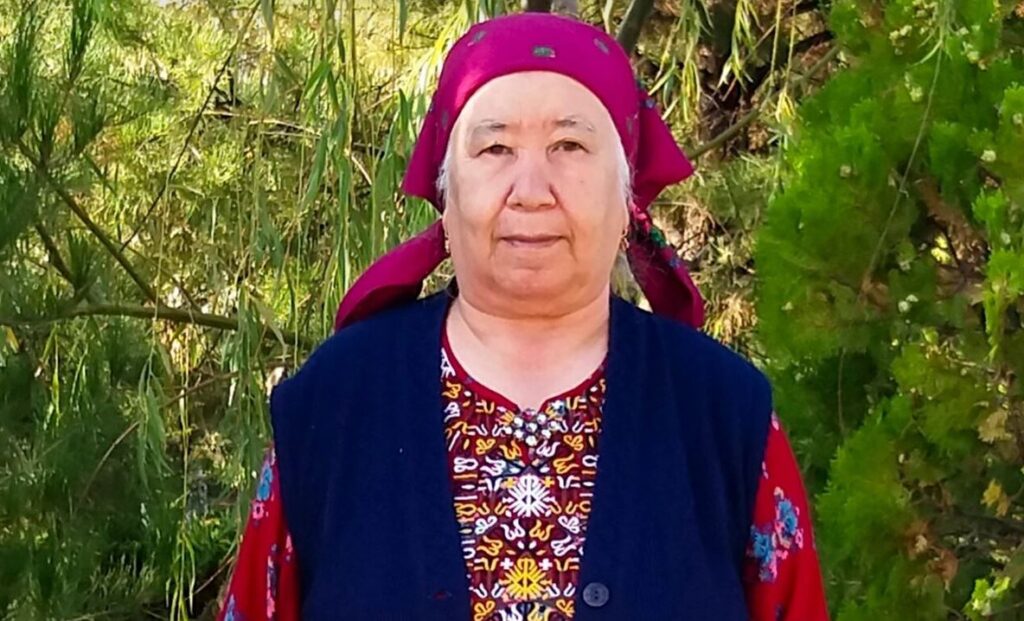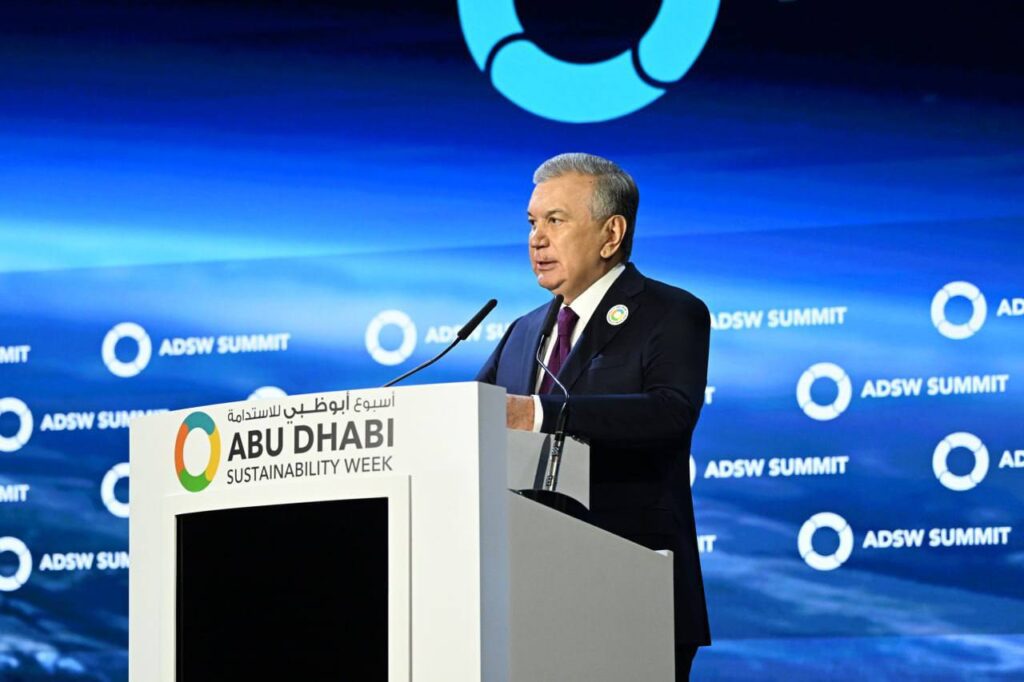BISHKEK (TCA) — The Times of Central Asia presents to its readers Stratfor’s Global Intelligence, a weekly review of the most important events that happened in the world — from Europe to Middle East to Russia to Central Asia to Afghanistan to China and the Americas.
The Week That Was
On the Sidelines of the G-20
Expectations were high for many countries going into the G-20 Summit in China, though most leaders left disappointed. Beijing wanted to show it was part of the solution to the global economic recovery, underscoring its own structural reforms and its indispensability as a partner and bridge between developed and developing nations. Progress at the summit, however, was more about various bilateral meetings than the actual group engagement.
China met with both large and small countries, many not members of the G-20, striking or negotiating deals with Russia, Brazil, Senegal, Chad and South Africa — among others. Turkish President Recep Tayyip Erdogan held talks with both Russia and the United States over Syria, but little was attained aside from a chiding by President Barack Obama for the government’s crackdowns following the attempted coup. Similarly, Erdogan’s meetings with EU leaders, like Francois Hollande, Matteo Renzi and Angela Merkel, over a proposed safe zone for refugees failed to result in tangible steps forward.
After two years of G-20 meetings in which Russia and President Vladimir Putin were treated like the pariah at the table, Putin wanted to remind the world that Russia is part of the global system, and must be dealt with. Where Putin held a flurry of meetings with nearly every leader present, his focus was to sit down with Obama — a president he believes does not give Russia enough respect. It was clear by the tense sideline meeting that the two countries are still far apart on the issues of Syria, Ukraine and sanctions, although Putin at least was able to show his people in the weeks before elections that he could still demand the attention of the most powerful man in the world before Obama leaves office.
G-20 and Climate Change
Just before the G-20 kicked off, President Barack Obama and Chinese President Xi Jinping held a public joint ceremony to present both countries documents of ratification for the global climate accord developed in Paris in December of last year. With this formal ratification from two of the world’s largest emitters, it places the Paris Agreement much closer to the needed 55 percent of total global emissions (and 55 countries) to have the agreement official take effect. That being said, as we have acknowledged in the past, this agreement, while a notable shift in global perception on climate change, will not alone be able accelerate the very gradual energy shift away from oil. Rather, without the ability to enforce targets through legal means, technological developments bringing alternative energy and efficiency technologies closer to economic feasibility and increased economic competitiveness will be the more important benchmarks to note.
ASEAN Summit
The Association of Southeast Asian Nations (ASEAN) and its partners convened for a three-day summit in Vientiane, Laos. Despite promises by Philippine President Rodrigo Duterte not to bring it up the recent tribunal ruling on the South China Sea, competition and cooperation in the critical waterway was a central focus. Perhaps because of the tribunal ruling, China appeared more cooperative on steps to establish a formal Code of Conduct for engagement with ASEAN, and steps are underway to try to reach a mid-2017 deadline for framework completion. The countries also adopted a long-delayed Code for Unplanned Encounters at Sea (CUES) and established hotlines to help defuse tensions and confrontations at sea between disputants.
Perceived unity with China, however, comes at the expense of internal ASEAN unity. There are more vocal calls, particularly from Vietnam, to consider shifting ASEAN from a consensus to a majority structure. This, Hanoi hopes, will weaken China’s ability to exploit individual members and undermine ASEAN unity. The meeting also saw more involvement from Japan, which has been increasing its economic and defense cooperation with several ASEAN countries.
North Korea Refuses to be Ignored
During the G-20 summit meetings, North Korea carried out a rapid series of missile tests. The test involved either Rodongs or a longer-range SCUD variant, demonstrating improvements in guidance and reliability, but also rapid near-simultaneous launches, which, combined with the mobile launch platforms, is an essential component of a more robust and viable missile program. On Sept. 9, the anniversary of the founding of North Korea and just hours after President Barack Obama left Asia, North Korea conducted its fifth nuclear test.
Pyongyang’s nuclear and missile program vividly highlights the limitations of sanctions as a policy against the isolated regime, but also underscores the difficulties of achieving unified action among the interested parties. A Chinese newspaper commentary even went so far as to suggest that the North’s test was in part a symptom of South Korea and the United States’ actions to increase tensions in the region through the planned deployment of the THAAD missile defense system. In both South Korea and Japan, however, there are even more serious conversations taking place regarding changes to defense policies, and while a long way off, both are allowing more open discussion about the potential need for their own nuclear capabilities.
Victories for Euroskepticism
The past week was an eventful one for euroskeptic and anti-system parties in Europe. The far-right Alternative for Germany (AfD) ended in the second place in a regional election in Mecklenburg-Western Pomerania, receiving almost 21 percent of the vote and pushing Chancellor Angela Merkel’s ruling conservatives into third place. While Mecklenburg-Western Pomerania is a relatively small district, Alternative for Germany’s performance highlights popular discontent with Merkel’s migration policies, which could be a significant topic in the 2017 general elections. In Italy, a scandal involving the management of waste is creating problems for the anti-establishment Five Star Movement, which currently governs the city of Rome. The Five Star Movement is running neck-and-neck in the polls with the center-left Democratic Party of Prime Minister Matteo Renzi, but scandals in Rome could hurt its popularity at the national level.
China SOE Restructuring
On Sept. 6, eight centrally administered state-owned enterprises representing such strategically significant industries as aviation, nuclear energy and advanced heavy machinery manufacturing signed restructuring agreements that would see them devolve or transfer non-core operations to other companies and pool their resources on large-scale machinery and infrastructure projects. The contracts come after months of increasingly urgent calls from central authorities for accelerated industrial consolidation across the state sector, and also reflect the government’s efforts to build international competitive enterprises in strategic industries like nuclear power.
A Grand Bargain in Syria
Russia and the United States struck a long-awaited agreement Sept. 9 on cooperation in Syria. The deal was likely the focus of conversations between the two presidents at the G-20 and was finalized in a sit-down between Russian Minister of Foreign Affairs Sergei Lavrov and U.S. Secretary of State John Kerry in Geneva. It likely involves joint targeting of Islamist forces. A cease-fire is set to start Sept. 12 and after seven days, the military provisions will kick in. These include cooperation against both the Islamic State and Jabhat Fatah al-Sham, the group formally known as Jabhat al-Nusra. Certain tricky factors remain. Not least of which, the degree to which the U.S. must rely on Russia to exact leverage from the Syrian government to cease airstrikes on rebel-held territory. Further, the rebel landscape in Syria remains a complex confluence of forces over whom the U.S.-led coalition does not have ultimate control.
Aftershocks in Central Asia
This week heralded significant political changes across the former Soviet sphere. Following the death of long-time Uzbek President Islam Karimov last week, Uzbekistan’s parliament appointed Prime Minister Shavkat Mirziyoyev as acting president on Sept. 8 and announced new presidential elections would be held on Dec. 4. In the meantime, there were major government reshuffles in Kazakhstan and Armenia, with new prime ministers being appointed in both countries: Bakytzhan Sagintayev replaced Karim Masimov in Kazakhstan and Karen Karapetyan replacing Hovik Abrahamyan in Armenia.
While each leadership change has its own unique national circumstances, these shake-ups point toward a broader trend of growing political instability across the former Soviet Union. Countries throughout the region are dealing with a combination of economic weakness and growing security threats, making for an increasingly difficult political situation to manage for the leadership of these states. These political changes are an attempt to address such issues, but by no means are guaranteed to resolve the underlying political, economic, and security issues that each of these countries face. Thus the coming weeks and months will be key to watch the transition process in these countries.
Full Articles
China’s Military Looks to the Sky
China is broadening its military horizons. The country is pursuing its global interests more proactively, driving its military to focus on becoming a more international presence as part of its “active defense” doctrine. As China extends its reach and expands its efforts to defend its interests around the world, the country has had to rely on branches of its armed forces beyond the army, traditionally the dominant branch. To that end, Beijing has poured money into developing its naval and air power and overhauling and modernizing its command and control structure. At the same time, it has worked to enhance its airborne forces.
Why Cuba’s Half-Century Embargo Won’t Be Lifted Overnight
Whether Cuba will soon undergo an economic revolution depends more on politics in Washington than in Havana. After all, the only thing standing in the way of unrestricted trade between the world’s largest economy and the island nation just 90 miles south of it is an embargo that rests on U.S. law. But after U.S. voters choose a new president, and perhaps change the makeup of the Senate and House of Representatives, in November elections, the U.S. Congress could begin discussing the embargo’s end.
Lifting the long-standing sanctions against Cuba will be easier said than done, though, especially given the lingering controversy over Havana’s thawing relations with Washington. Even if the next U.S. president were willing to begin restoring trade ties between the two countries, there is little to suggest that a post-embargo Cuban government would look much different from the one in power today — a problem that will no doubt create headaches for whoever wins the approaching U.S. election.
Disruptive Technology: Standing on the Shoulders of Giants
Technology and geopolitics are unequivocally intertwined. Throughout history, new technologies have had the power to change the world order. In the coming decades, any number of emerging fields and technologies — from automated vehicles, blockchain and advanced manufacturing to robotics, additive manufacturing, precision agriculture and genetic engineering — could alter how the world and its inhabitants work. But technological development does not happen overnight. On the road to full commercialization, an emerging technology sector will encounter numerous breakthroughs and almost as many failures. Developments in supportive industries such as materials science — the study of materials and their synthesis, processing, structural elucidation, properties and performance — meanwhile, can be just as important to the progress of disruptive technologies. Once limited to traditional materials, the sector has grown in recent years to include newer fields such as nanotechnology. Discovering new materials — or new information about old ones — can facilitate progress in a variety of sectors, including electronics, energy and the military, to name a few.
In a broad sector such as materials science, the sheer number of announcements of progress can be overwhelming. Understanding the constraints that a developing technology must overcome — be it cost, consistent manufacturing technique or better performance levels — helps make sense of the noise. Even if a report claims that a product or process has cleared an important hurdle, depending on what stage it is in, the victory may be fleeting. Plenty of great ideas get lost in the shuffle between discovery and commercialization. A closer look at some of the advancements that have been made in materials science over the past month underscores the relationship between technology and geopolitics and highlights some the most promising signs of progress in technologies that may still be years away from maturity.
Egypt: The Eastern Mediterranean’s Next Natural Gas Hub?
A string of sizable natural gas discoveries has been made in the eastern Mediterranean Sea over the past decade, and Egypt is working to ensure that it reaps the benefits. On Aug. 31, Cairo signed a preliminary deal with Cyprus to build an underwater pipeline linking Cyprus’ Aphrodite gas field with the Egyptian coastline. If the project overcomes the considerable hurdles that still lie in its path, including uncertain funding, the pipeline could be operational by 2020, enabling Cyprus to finally begin producing from its largest known natural gas deposit.
For Egypt, though, the deal is but one small part of a much broader strategy. As the promise of eastern Mediterranean energy draws in significant amounts of foreign investment, Cairo hopes to become the center of regional natural gas development. And it will no doubt be successful, since without Egypt’s infrastructure and massive consumer market, many of the projects under consideration would be neither economical nor feasible.
The Week Ahead
A Test for Putin
Russia will hold parliamentary elections Sept. 18, in what is being seen as the litmus test for the strength of the long-standing Russian regime under President Vladimir Putin. This is the first national election since the 2011-2012 mass protests across the country, stemming from the Kremlin’s blatant manipulation of the last parliamentary elections and Putin’s decision to run for a third term as president. This time, the Kremlin cannot out-right rig the elections or risk a similar reaction from the Russian people. But the ruling United Russia’s approval rating has halved since the beginning of the year, now at 31 percent. So the Kremlin is trying to creatively arrange these elections to keep some sort of force in parliament. These elections are also a test of the popular support for Putin and his regime, with presidential elections — which would be Putin’s fourth term — only 18 months away.
Myanmar’s Iron Lady in Washington
Myanmar’s de facto leader Aung San Suu Kyi will visit the United States from on Sept. 14 to Sept. 15. During her trip, she will meet with President Barack Obama, some prominent lawmakers, and potentially U.S. Secretary of Defense Ash Carter. Key issue for the visit are whether the United States will further ease sanctions on Myanmar and whether the two countries can enhance security cooperation. (Sanctions were imposed originally on the military junta, which went out of power in 2010.) Washington has so far eased some restrictions on trade, investment and state banks, but sanctions on some individuals with ties to the military or to certain businesses remain. Suu Kyi will request that the United States remove sanctions on this individual list, and quite likely Suu Kyi is leveraging the sanction over her relations with the military. Security cooperation was previously hampered by Myanmar military’s tight grip on power, and it would be key to watch to what degree both want to move forward the military engagement — something Beijing will watch closely.
The Hajj
The annual Hajj pilgrimage stretches over the weekend, and Eid al-Adha — one of the main holidays on the Muslim calendar — is celebrated in most countries on Sept. 12. These holidays not only are characterized by the movement of large groups of people, especially with respect to the Hajj pilgrimage in Mecca, Saudi Arabia, they can also become targets for extremist attacks. As evidenced by the cluster of attacks that occurred in some Muslim countries around Ramadan this summer, there is always a risk for security or safety issues around these holidays. In addition, the rhetorical battle between Iran and Saudi Arabia will continue over Saudi Arabia’s management of the Hajj pilgrimage. Another security concern timed with Eid al-Adha are the handful of strikes planned in some Middle Eastern countries, such as a hunger strike against corruption in Iraq and a teachers’ union strike in Morocco, both of which comprise their own security concerns.
More Post-Brexit Fuss
The coming week will see EU governments and officials discussing the direction of the bloc after the Brexit referendum. On Sept. 14, European Commission president Jean Claude Juncker will give his annual “state of the union” speech, where he is expected to focus on security and economic growth. Then on September 16, EU member states will meet in Bratislava to hold their first summit without the United Kingdom. EU heads of governments will likely discuss plans to increase cooperation on security and defense, as well as EU-wide investment plans. The summit will probably highlight the different views that northern, central and southern Europe have on what the future of the EU should look like. While southern European countries want to increase EU spending, introduce more flexibility on debt and deficit targets and incorporate measures to improve risk sharing in the eurozone, countries in northern Europe want to focus on security and defense. Countries in Central and Eastern Europe, in the meantime, are likely to resist any measures that would transfer more sovereignty to institutions in Brussels.
